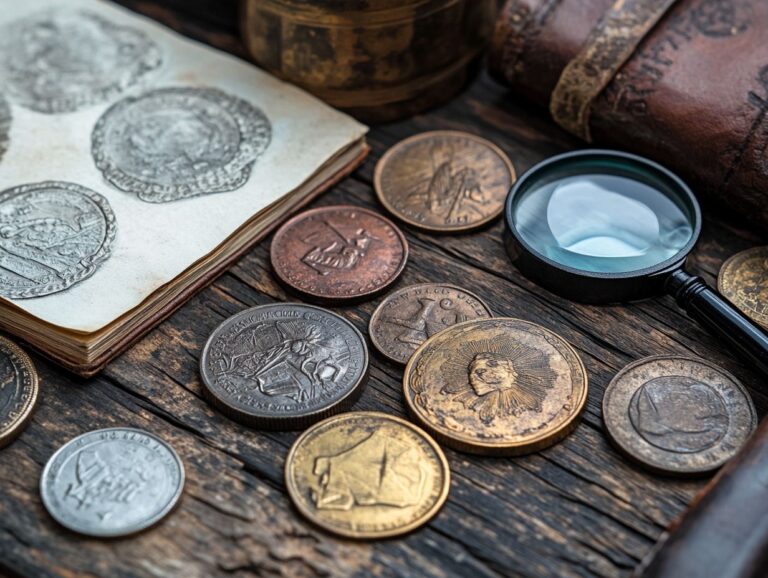Discover the Value of Rare Vinyl Records Today: A Comprehensive Guide
Rare vinyl records have created a unique niche in both music culture and investment circles, making them a captivating topic for music memorabilia collectors and enthusiasts looking into vinyl records investment.
This article delves into what gives these treasures their value, including the main factors that affect their worth and an album worth assessment.
It covers how to determine a record’s value through research and evaluation, including record appraisal and understanding vinyl condition grading, as well as the best places to buy and sell these prized items.
Essential tips for those looking to collect, invest in rare vinyl records, and understand their investment potential will be shared, ensuring both enjoyment and potential profit.
Explore the world of rare vinyl records, including vintage vinyl pricing and learn how to navigate it successfully by understanding condition assessment!
The Value of Rare Vinyl Records
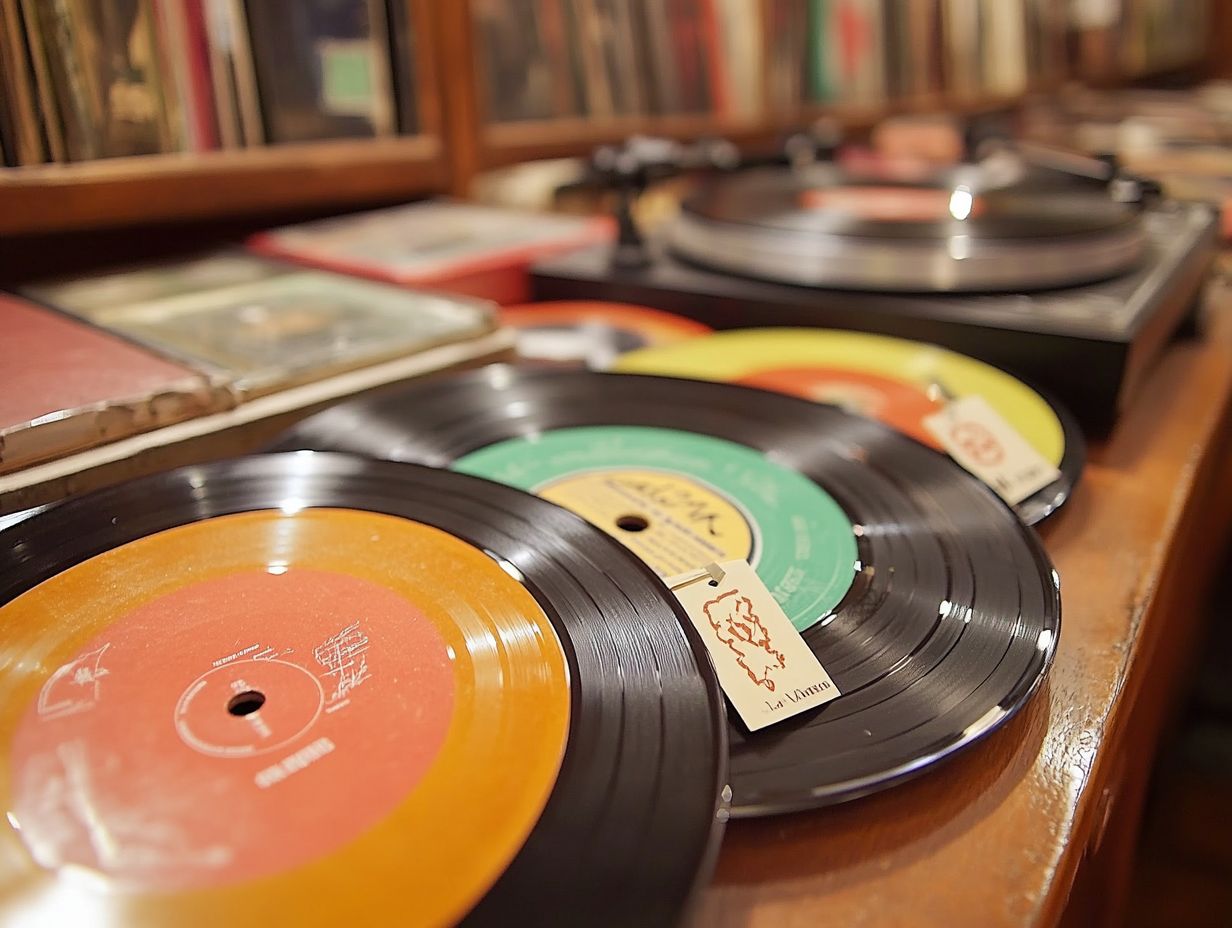
The value of rare vinyl records depends on factors such as market demand vs supply, scarcity, and the historical importance of the albums. As vinyl becomes more popular among music lovers, understanding how vinyl record pricing works is crucial for collectors in the music collector community.
Rare records that are highly valued often include limited edition pressings, first pressings, or iconic album art that signifies music history and acts as cultural artifacts.
Collectible records can offer nostalgia and can also be an investment that increases in value over time, especially if they are in mint condition, which contributes to their resale value.
Factors that Affect the Worth of Vinyl Records
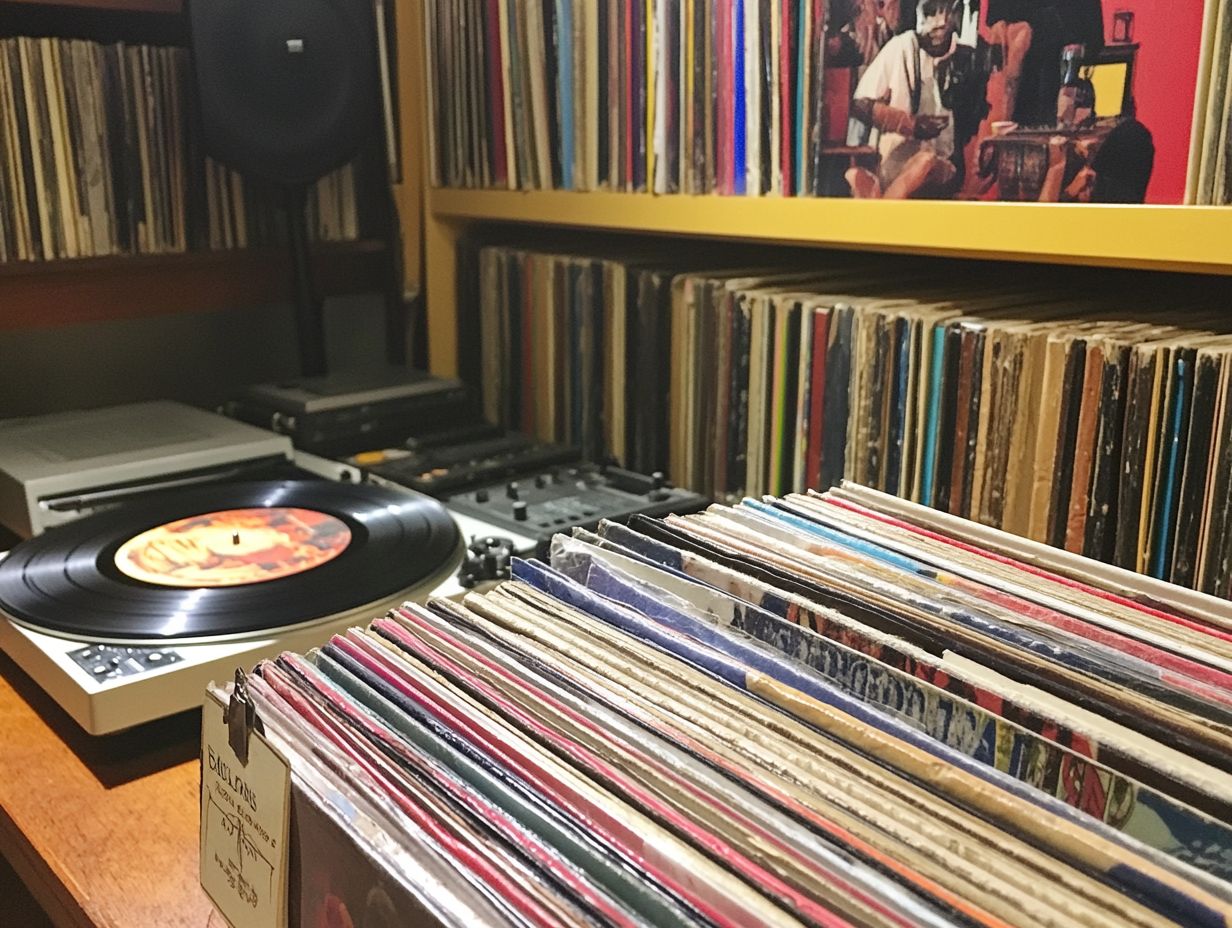
Several factors influence the value of vinyl records, including their condition, rarity, and historical significance. Collectible records are graded based on their condition, which greatly affects resale value and trade value.
Records by influential artists or from iconic genres often have higher prices due to their cultural significance and collector demand. Limited releases and special editions increase market demand, leading to wide fluctuations in vinyl record prices influenced by market fluctuations.
The condition of a record is critical in determining its worth; a mint condition copy can be worth much more than a worn one. The genre of the music also affects value perceptions, with classic rock or jazz albums typically attracting higher bids compared to less mainstream genres, reflecting genre influence and genre popularity.
An artist’s legacy further adds to an album’s significance, particularly those tied to key cultural movements, historical pressings or shifts in musical history.
Understanding these factors helps in accurately pricing records, record value today, and enhances the collector’s experience, offering a deeper appreciation for these valuable items as part of music appreciation.
Determining the Worth of a Record
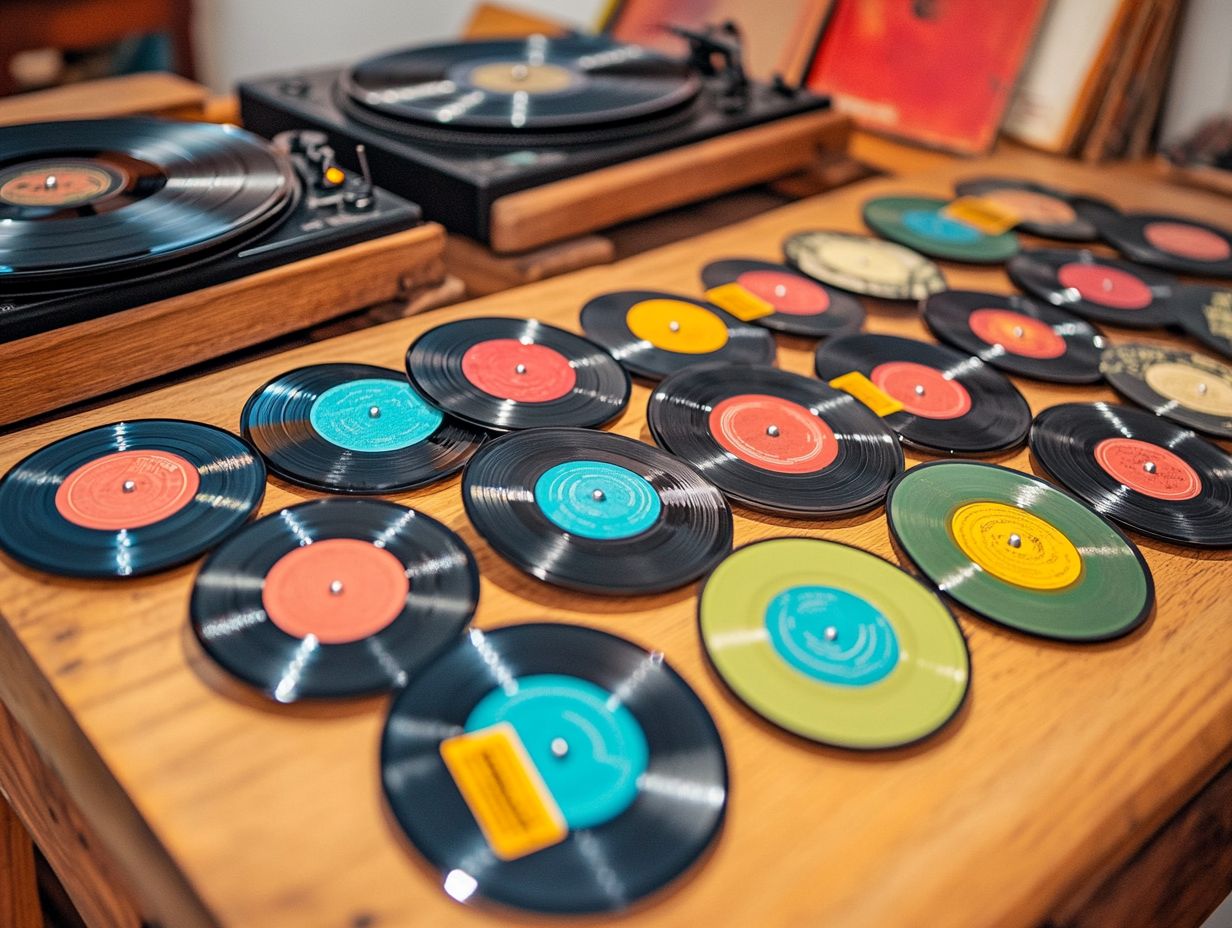
Evaluating the worth of a record involves considering factors like its condition, rarity, current market trends, and vinyl genres.
Collectors often use pricing guides and expert appraisals from specialized dealers to accurately determine the value of their music collectibles.
Market demand and auction prices are key elements that influence the value, affecting decisions for both buyers and sellers in the collectible records market and music auctions.
Researching and Evaluating Rare Vinyl Records
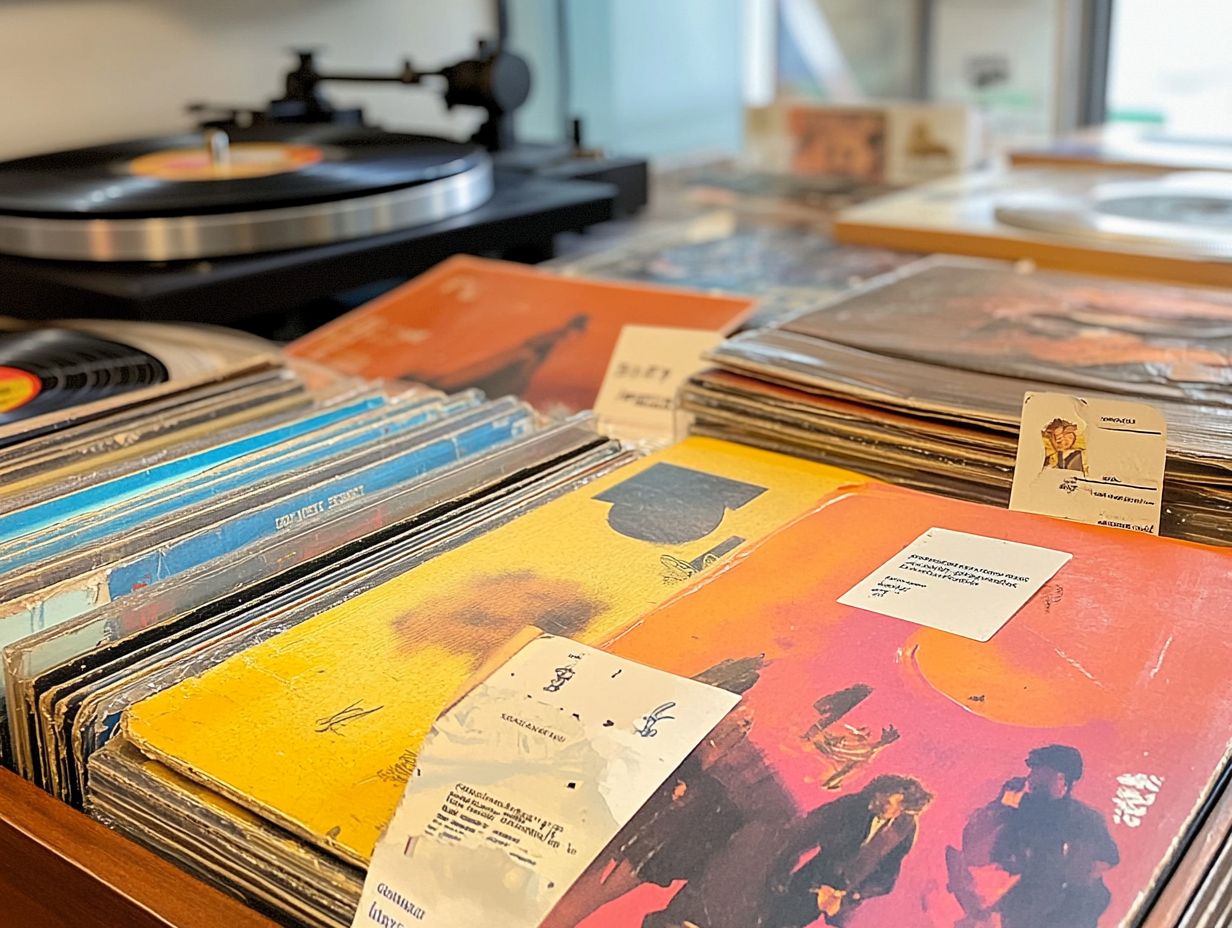
Researching and evaluating rare vinyl records requires using various resources such as online marketplaces, music archives, and historical records to gather useful information. Experienced collectors use platforms like Discogs to monitor record sales and analyze market trends.
Understanding the albums’ historical context and unique features helps collectors accurately assess the value of rare records, such as original pressings and vinyl authentication. This thorough approach is key for vinyl enthusiasts wanting to make informed buying or selling choices.
Exploring the stories from the time the music was made helps collectors understand its cultural significance and potential demand. They should focus on specific record labels, pressing variations, and the vinyl’s condition, which enhances sound quality and discography rarity.
Current market trends are also important, as increased interest in classic music genres and limited pressings can affect prices due to demand analysis. Knowledgeable collectors often join online forums and the vinyl community to share insights and experiences, enhancing their research and grasp of the changing world of vinyl collecting.
Where to Buy and Sell Rare Vinyl Records
Finding the best places to buy and sell rare vinyl records is important for collectors and investors in the music industry, considering both local record stores and online marketplaces.
Local record stores offer chances to find unique records, such as record store finds, while online marketplaces like eBay and Discogs allow trading with a wide audience.
Attending vinyl fairs and record shows can also help you find valuable records, potentially rare finds, and meet other vinyl enthusiasts.
Each option offers unique benefits in selection, pricing, and community interaction, contributing to a better understanding of trade value and ownership history.
Online Marketplaces and Physical Stores
Online marketplaces and physical stores are popular venues for buying and selling rare vinyl records, each offering unique benefits for collectors. Online platforms have changed how vinyl enthusiasts find records and explore trends, offering a wide selection and allowing for price comparisons.
In contrast, local record stores offer the chance to physically inspect vinyl conditions and interact with knowledgeable staff who can provide insights into resale value and flipping records.
Shopping online allows for finding rare items from home but comes with the challenge of not being able to check vinyl quality firsthand, which can affect long-term resale value. The online resale market can sometimes lead to oversaturation and price variations that do not always match actual demand in the seller’s market.
Physical stores build community connections and may offer unique limited editions not available online, giving collectors the chance to build relationships that enhance their shopping experiences and expand their understanding of current vinyl trends and buyer’s market potential.
Tips for Collecting and Investing in Rare Vinyl Records
Collecting and investing in rare vinyl records needs a strategy that combines a love of music with financial planning. Experienced collectors know it’s important to invest in records that they personally enjoy and that also have value due to their rarity and influence in the genre.
Having an eye for unique pressings, such as artist collaborations and promotional records, and keeping a well-organized vinyl collection can increase both personal enjoyment and potential financial returns, especially in niche markets where selling records for profit might work well.
